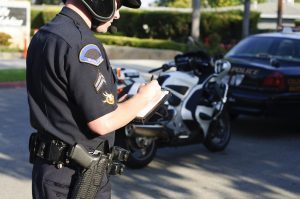Have you seen the viral video of the nurse being arrested after refusing to draw blood on a patient who had been in a car accident? The patient was unconscious and though suspected of driving under the influence, the patient was not under arrest. According to the policies of University Hospital in Salt Lake City, where this incident played out, the nurse could only draw blood from an unconscious patient if that patient was under arrest or if officers had a warrant. Despite this policy, the detective requesting the drug test arrested the nurse, and though this event happened in Utah it is causing a stir here in California where we have implied consent laws.
What Is Implied Consent?
Here in California, if you have a state-issued driver’s license then you have also given consent to submit to a chemical test—blood, breath, or urine—in the event that you are lawfully arrested for driving under the influence. This is known as implied consent, and even being unconscious or dead is no exception to this law. Though required to take one of these tests by law, a person still has the right to choose which test they take. If you are not under arrest you do still have the right to refuse a chemical test, but this law has now come under scrutiny in the Supreme Court.
Why Did Viral Video from Utah Cause Controversy in California?
The case out of Utah bears a similarity to another case out of Santa Clara County. In that case, a man’s blood was drawn without a warrant while he was unconscious. The man-made motion to suppress these blood results in his DUI case, which the court denied based on the arresting officer acting in good faith with the implied consent law. That decision has been appealed all the way to the Supreme Court, and if they find that the blood test is inadmissible, then California implied consent laws could be found unconstitutional.
The San Jose criminal defense attorney here at the Law Offices of Thomas Nicholas Cvietkovich understands the importance of this case. So, check back with us for updates that could shake the foundation of California criminal law.


